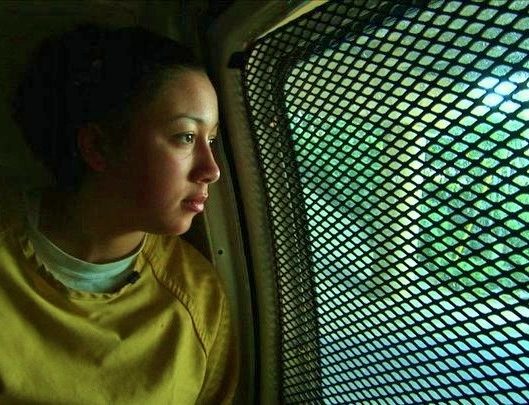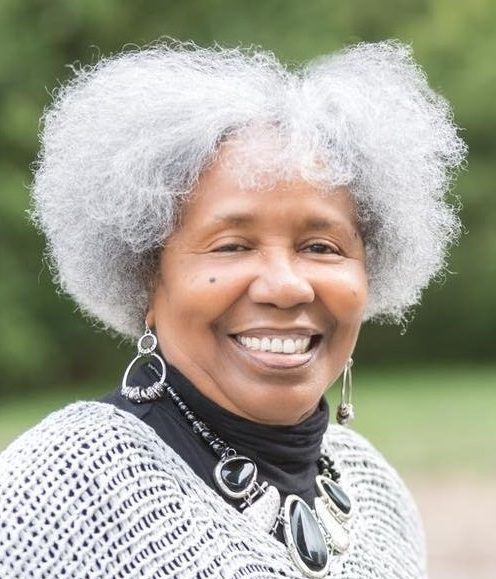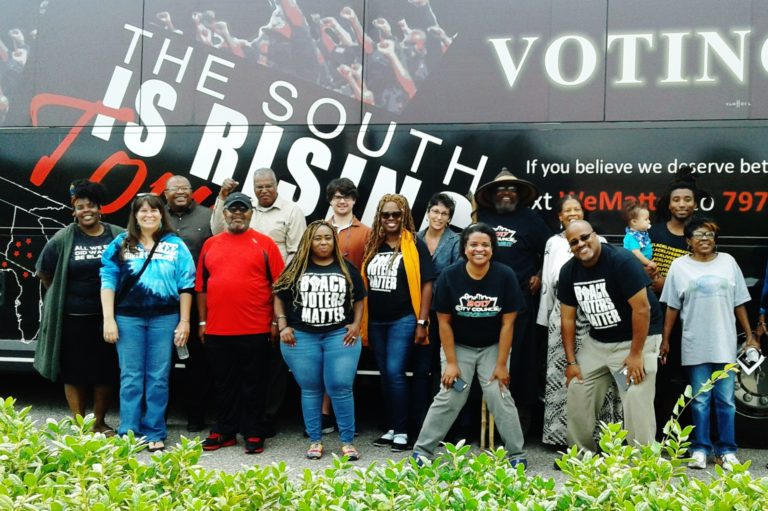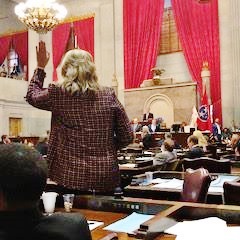Child Sex-Traffic Victim Punished: The Case of Cyntoia Brown
By Angela Dennis
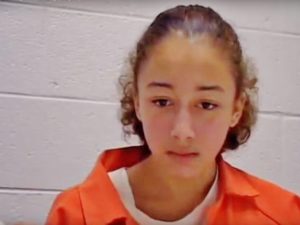
In an effort to tip the scale for Cyntoia Brown, Black Lives Matter of Nashville activist Justin Lang confronted Tennessee Governor Bill Haslam last week during an event on the importance of higher education. Haslam has until January when his term ends to consider clemency.
Cyntoia Brown, a victim of sex trafficking was convicted of first-degree murder in 2004 for killing a man who solicited her for sex when she was 16 years old. The Supreme Court of Tennessee ruled last week that Brown must serve 51 years before being eligible for Parole despite sentencing laws that pertain to minors.
Upon approaching the podium, BLM’s Lang said “As a victim of sex trafficking and assault, this is an unjust sentence in the first place,” Lang said. Under Tennessee law, all minors engaged in sex work are legally considered victims of sex trafficking. “She has not been treated as a victim of trafficking and not given the justice she deserves.”

“The Supreme Court’s decision that Cyntoia must serve 51 years before she can be considered for parole is a human rights issue,” Lang said. “And so I ask you, what really, functionally, is the difference between life without parole — which is no longer constitutional as the United States Supreme Court declared for minors, for any crime — and ‘you might get parole after 51 years,’ for a victim of sex trafficking?”
“And so I ask why has Cyntoia Brown been incarcerated for 14 years for enduring harm? And so I say, Governor Haslam, you have the power and ability to grant clemency to Cyntoia Brown, and so I ask when will you grant her clemency, I ask what will be your legacy as you leave office, and how will you answer to this human rights violation that the state of Tennessee is committing by keeping her incarcerated?”
Gov. Bill Haslam replied that his office is carefully reviewing Brown’s case and speaking to everyone involved.
With heavy resistance from the crowd, one woman shouted “that’s not good enough” and the audience began chanting “What do we want? Clemency! When do we want it? Now! No justice no peace!”, thus abruptly ending the meeting.
Cyntoia Brown is an example of how hard our justice system works against black and brown lives. Being charged as an adult is not new for underage young men and women of color. For example, in the State of Florida, any juvenile over the age of 16 charged with a violent crime must be tried as an adult. This also can apply to children under the age of 16 in some cases.
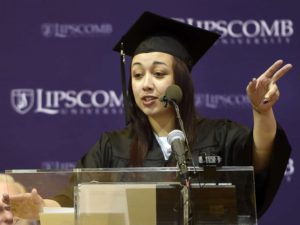
Black juvenile offenders make up the majority of the defendants in Florida to receive the sentence of life without parole. The perceptions of juvenile status in America can quickly waiver based on the race of the defendant. Judges are less likely to be merciful toward young people of color. For this reason, we must recognize the power this type of injustice has and work to support political candidates in our districts who seek to change the way race effects sentencing and who supports policies which seek to eradicate these disparities.
Thanks to the pushback of citizens writing letters of disproval, signing petitions, calling Governor Haslam’s office, along with activists such as Justin Lang and the Black Lives Matter Movement, we must all realize what our voices can accomplish. We must keep fighting at all costs. It is in the resistance that change can occur when we show up and organize effectively.
Actions taken include contacting the Governor’s office directly by phone or mail and signing a petition, which currently has 577,857 signatures can be signed and shared at MoveOn.org at https://petitions.moveon.org/sign/free-cyntoia-brown.


